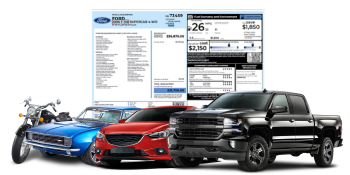Everyone knows mileage affects a car’s value, but exactly how? High mileage often signals wear, but it doesn’t tell the whole story.
When you buy or sell, knowing how mileage plays into a vehicle’s worth can make a big difference. Mileage matters, but it’s just one part of the equation.
In this article, we will discuss to what extent mileage reduces a car’s value, provide other factors affecting a car value, and offer expert tips for both buyers and sellers.
RELATED: Fuel Efficiency in Cars: Definition & Importance
How Does Mileage Affect a Car’s Value?
The general rule is that the more miles a car has, the less it’s worth. This is because wear and tear build up as a vehicle racks up the miles, which can lead to more maintenance and repairs.
Typically, most cars lose around 10-20% of their value each year. By the time a car hits 100,000 miles, its value can drop by as much as 40-60%, though this varies by make, model, and condition.
Mileage doesn’t tell the whole story. For example, a well-maintained car with 80,000 miles can sometimes be more valuable than a poorly maintained car with just 50,000 miles. While mileage remains a strong indicator of car value, understanding its nuances helps buyers and sellers avoid mistakes.
Mileage Thresholds: Low, Average, and High
Mileage thresholds can guide you in assessing a car’s worth. Here’s how each category impacts the value.
Low Mileage
Cars with low mileage—typically under 50,000 miles for their age—often have a higher resale value. Buyers view low mileage as a sign of limited wear, which means the car is less likely to need costly repairs soon. If you’re buying, expect to pay a premium for a low-mileage car. For sellers, low mileage can be a significant selling point, boosting the value.
Average Mileage
Average mileage varies but is generally considered 12,000 to 15,000 miles per year. This range balances the car’s usage with its expected lifespan. Vehicles within this threshold retain a stable value, but buyers and sellers should still consider the car’s maintenance history. A vehicle with average mileage is often seen as well-used but generally reliable.
High Mileage
Vehicles with high mileage—over 100,000 miles—usually face more depreciation, though this varies by brand. Buyers may see high mileage as a risk, expecting more repairs and upkeep costs. It’s a good idea for sellers to document service history and condition. Other factors like regular maintenance and brand reputation can help balance the perceived downsides with high-mileage cars.
Other Factors Affecting Car Value
Mileage tells part of the story, but age, condition, and maintenance history play a big role, too. Here’s how they interact with mileage to determine value.
Age of the Car
Age and mileage often go hand-in-hand. However, even a low-mileage car may lose value if it’s very old, as older vehicles may lack newer features, safety standards, and reliability. Conversely, a newer car with high mileage may still hold value due to its updated features and warranty coverage.
Condition of the Vehicle
The condition affects value just as much as mileage. A pristine car might be worth more than a low-mileage car in poor shape. This includes the exterior, interior, and even less visible parts like the engine. A window sticker lookup by VIN can help you find specific details about a vehicle’s original features and condition, helping you gauge its true worth.
Maintenance History
Cars with regular maintenance—especially high mileage—tend to retain value better. Maintenance records, such as oil changes, tire rotations, and scheduled servicing, reassure buyers that a car has been well cared for. Even if a car has high mileage, a full service history can help maintain its value.
Assessing a Vehicle’s Value Based on Mileage
Understanding mileage is key to determining its value if you’re buying or selling a car.
Tips for Buyers
- Buyers should look for cars within the average mileage range, around 12,000-15,000 miles per year.
- Ask for maintenance records, and don’t hesitate to negotiate based on any gaps in the vehicle’s history.
- When in doubt, a quick window sticker search can show you the car’s specs and features, so you know what was originally included and what to expect in terms of condition.
Tips for Sellers
- Sellers should showcase their car’s maintenance records and any upgrades or repairs made to keep the vehicle in top shape.
- If your car has low mileage, highlight this fact, as it can be a significant selling point.
- Use a window sticker lookup tool to generate a detailed record of your car’s specs so buyers know what they’re getting. This can boost trust and potentially add to your car’s value.
Managing Mileage to Preserve Value
If you’re hoping to keep your car’s value high, it’s wise to manage your mileage carefully.
Limit Unnecessary Trips
Try to consolidate your errands or opt for public transportation when possible. Fewer miles mean a slower rate of depreciation, which can boost your car’s value over time.
Regular Maintenance
Routine maintenance can make a high-mileage car more attractive to future buyers. Oil changes, tire checks, and brake servicing go a long way in keeping your car in good condition.
Long Highway Drives vs. Short City Trips
Highway miles generally cause less wear than city driving, where stop-and-go traffic strains the engine and brakes. If you’re driving long distances, aim for highway routes when possible to reduce wear.
How Window Stickers Lookup Can Help You
Window Stickers Lookup offers a valuable service for those buying or selling cars. By providing access to the original window sticker by VIN, our service gives you detailed specs and history on a car, including options, features, and standard equipment.
This information can help you evaluate the car’s worth more accurately and make a more informed choice. Whether you’re a buyer checking for specific features or a seller showcasing your car’s highlights, a vehicle’s window sticker provides crucial insights.
If you’re considering a purchase, you can use this information to verify that the car includes everything advertised, which is especially important when dealing with mileage-related depreciation.
Conclusion
Mileage undoubtedly affects car value, but it’s only one factor among many. Age, condition, and maintenance history can shift the scales, either enhancing or lowering a car’s worth.
For buyers and sellers, understanding these dynamics is key to making smart decisions. By managing mileage, keeping up with maintenance, you can navigate the used car market with confidence and find the right balance between value and investment.
Frequently Asked Questions
Does low mileage always mean a car is worth more?
Not necessarily. While low mileage often adds value, condition, age, and maintenance history matter, too. A low-mileage car in poor condition might not be as valuable as a well-maintained, higher-mileage one.
How can I estimate the value of my car based on mileage?
Mileage plays a significant role in determining value, but other factors like age, condition, and features should also be considered. Our window stickers lookup tool can help you see the original specs, which can help you make an accurate valuation.
What other factors should I consider when selling my car?
In addition to mileage, consider the car’s age, condition, and maintenance records. Highlighting upgrades, recent repairs, and specific features can also increase your car’s appeal to buyers.









